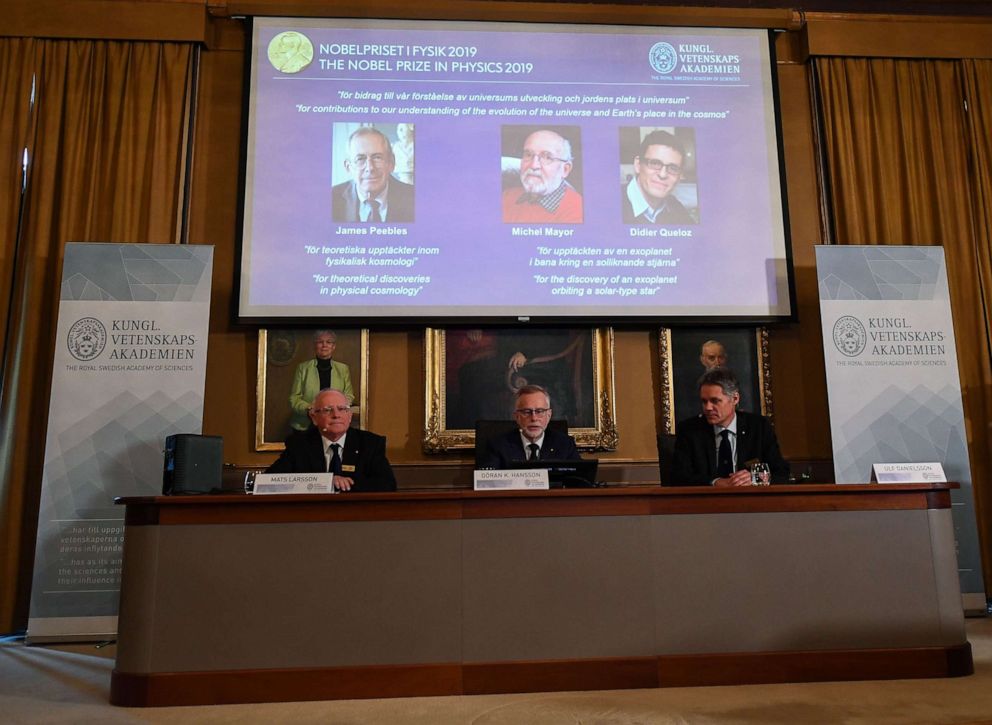Nobel Prize for Physics awarded to 3 scientists for contributions to understanding evolution of the universe
The three men will share a 9-million kronor ($918,000) award.
Three scientists have won the 2019 Nobel Prize in Physics for their work on understanding "Earth's place in the cosmos" and the evolution of the universe.
One half of the award was given to James Peebles, of the United States, "for theoretical discoveries in physical cosmology."

The other half was awarded jointly to Swiss astronomers Michel Mayor and Didier Queloz "for the discovery of an exoplanet orbiting a solar-type star."
The three men will share a 9-million kronor ($918,000) award, a gold medal and a diploma that the laureates will receive at a ceremony in Stockholm on Dec. 10.
Their work helps us better understand how the universe was formed and what it's made of, changing how we understand the universe.
In particular, Peebles' theoretical framework, which formed the basis of our modern-day ideas about the universe, enriched the field of cosmology at large, transforming it from "from speculation to science," according to the Royal Swedish Academy of Sciences, which awarded the prize.
Last year's Nobel Prize in Physics was awarded to Donna Strickland of Canada, Arthur Ashkin of the United States and Gerard Mourou of France, for their work on harnessing laser light, which led to the invention of Lasik eye surgery. Strickland was the third woman in history awarded the Nobel Prize in Physics.
Nobel prizes in chemistry and literature will continue to be announced this week, with the most famous prize, the Nobel Peace Prize, announced Friday.




